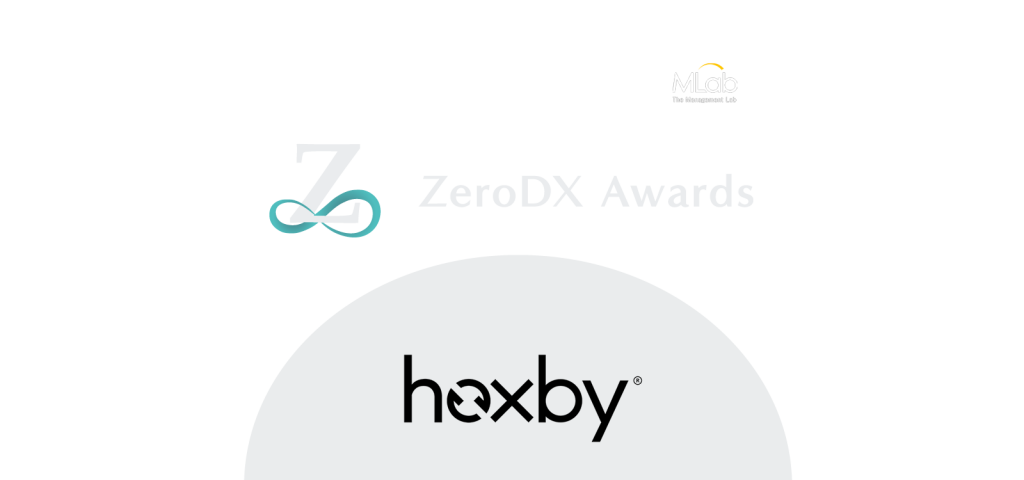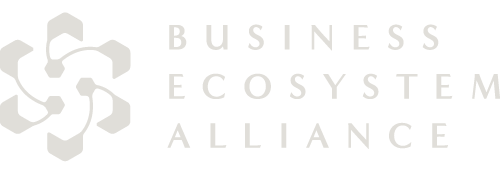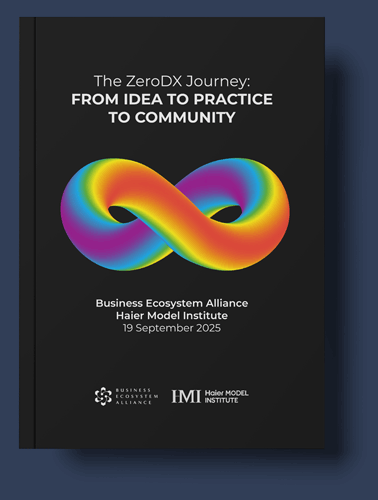
Hoxby: Refreshing Work By trading Conformity for Аutonomy
Introducing Hoxby
Hoxby is a community-based B-Corp with no offices, no employees and no working hours. It has been a testbed for autonomous “workstyle” working since 2015, delivering employee experience and creative communications projects for clients like Unilever, AIA, Merck and AWS. With 500+ team members spread across 43 countries, Hoxby aims to create a happier, more fulfilled society through a world of work without bias. This organizational purpose guides the way they work, and also the work they deliver for clients. Hoxby is committed to high standards of social and environmental performance, transparency, and accountability. Hoxby’s Co-Founders Alex Hirst and Lizzie Penny published a Sunday Times No.1 Bestselling book on the subject of workstyle and are now working with leading UK charities and employers to build the highly inclusive principles of workstyle into a variety of work environments, influencing government policies in pursuit of their aims.
Hoxby is a quintessential example of an organisation led in line with the RenDanHeYi management philosophy. Teams organize around client needs, have full autonomy to deliver an outstanding customer service and experience and share in the rewards of the enterprise.
Organizational Structure
Hoxby utilizes a unique organizational structure that eschews traditional hierarchical models in favor of a fully decentralized, self-managing approach. The company operates without fixed office hours or locations, allowing people to work whenever and wherever they are most productive. This model is based on the principle of "workstyle," which empowers individuals to choose when and where they work for themselves. Internal and Client-facing teams are assembled based on project needs, drawing from a globally distributed collective of freelance specialists (micro-entrepreneurs) who bring a wide range of skills and diverse perspectives to each project. Members of Hoxby are tasked towards outputs, paid against deliverables and each member receives an equal share of total company profits at the end of each year.
Created as the prototype for workstyle working, Hoxby operates across time zones, delivering projects for clients in Australia, New Zealand, Hong Kong, Japan, Finland, Denmark, Germany, USA and at home in the UK. Being globally distributed, the need for inclusion is high. For example, the company values are explicitly communicated as phrases and embedded as hashtags and custom emojis within their working culture; #playyourpart #bettertogether #respecttheworkstyle #alwaysimproving #lovewhatyoudo #happierworld.
Customer Centricity and Autonomy
Customer centricity at Hoxby is achieved through its revolutionary, client-oriented approach. Workers have significant autonomy to make decisions that best serve client needs. This is facilitated by the company's emphasis on transparent communication and a strong feedback culture within a culture of community. Hoxby’s project teams are tailored specifically to client requirements, ensuring that the right expertise is applied to every project rather than being limited to just the people employed by the company. This client-centric model allows Hoxby to deliver highly customized and effective solutions, enhancing customer satisfaction and loyalty.
Members of the Hoxby community, known as Hoxbies, organize themselves into micro communities based on skills, passions or life experiences as well as into talent pools that deliver each part of the Hoxby service offer to customers. These talent pools are led by Hoxbies who are accountable for the client relationship and for delivering work on behalf of Hoxby. At the start of each project, a project team is curated by them, based on the client and the brief, with other members of the team invited to help shape the approach they will take. A team charter is created, making clear the responsibilities of each member, the commitment to shared objectives and deliverables as well as how the team will work to respect each member’s workstyle.
Decision making is contained within the team accountabilities, replacing hierarchy with support from wider team members to provide information and perspectives that shape decisions that serve the best interests of the project. By allocating people to accountabilities, rather than job titles, Hoxby teams are always able to direct their decision making towards the project deliverables and outcomes, reducing the distance to customers.
Internal Culture and Employee Engagement
Hoxby's internal culture is characterized by flexibility, transparency, and inclusivity. At the core is the "workstyle" approach, which not only allows employees to set their own working hours but also encourages them to create a work environment that suits their personal lives and productivity rhythms. This autonomous way of working is designed to increase the diversity of their collective, foster a more fulfilling work-life balance and a more productive work arrangement for each person as well as building a highly inclusive culture. Hoxby believes that its diversity of thought and inclusive culture increases the collective intelligence of its teams, and therefore the value of its work to clients.
Hoxby understands that with autonomy comes accountability. This is achieved in several ways. First, the community operates as a meritocracy. Members are judged on the quality of their work, rather than time at work. This eliminates the pressure to always ‘be on’. Plus, the core value of #respecttheworkstyle is self-policed by all Hoxbies. This pioneering way of working has also spawned a new service for Hoxby, now helping its clients to work in a more inclusive and autonomous way, merging Hoxby’s creative work with its understanding of progressive culture building to develop employer brand identities and employee experiences.
Conclusion
The result for Hoxby’s venture into researching new ways of work is clear. When people can decide how, when and where they work (workstyle) they are more productive, thanks to an increased state of well-being. The benefits to inclusion and the diversity of the workforce are significant and the impact on society and the economy, if replicated at scale, could be revolutionary.
Looking at their work with clients, it becomes apparent that self-organization around client needs, autonomy to make decisions fast and participation in the rewards of the company can deliver outstanding value and create long-term partnerships.
Please find additional information here:
- https://hoxby.com/
- https://workstylerevolution.com
- https://www.corporate-rebels.com/blog/what-s-your-workstyle


